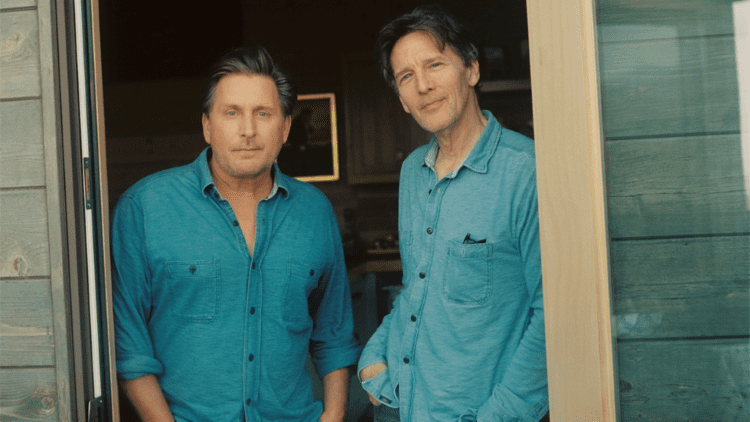
For years, I thought that films with the “Brat Pack” term attached to them were only written and/or directed by John Hughes. A lot of that stems from numerous viewings of The Breakfast Club and somewhat knowing the filmography of Hughes and the stars of that movie, such as Emilio Estevez, Molly Ringwald, Ally Sheedy, and Judd Nelson. And to be honest, I grew up in the 1990s, when the popularity of that label faded away and the actors and actresses attached to it set off to do other projects that were more fitting for them during that decade.
Buy The Breakfast Club – 30th Anniversary Edition Blu-rayBut “Brat Pack,” as explained in this new documentary directed by Andrew McCarthy, originated from a 1985 New York magazine article that showcased the popularity of both The Breakfast Club and Joel Schumacher’s St. Elmo’s Fire – the latter of which also starred Estevez, Nelson, and Sheedy. The term was coined by journalist David Blum and meant to be a playful ode to the Rat Pack of the 1950s and 1960s – which included Frank Sinatra, Dean Martin, and Sammy Davis Jr. But what Blum didn’t intend to have happen was to have the term be viewed as a negative descriptor, one in which certain filmmakers assumed they were snobby and difficult to deal with. While the actors and actresses attached to the label had successful careers during the ’80s, there was also this feeling that being known as a member of the Brat Pack harmed any opportunities that they could have had with filmmakers who started to become well known during that time, such as Martin Scorsese and Steven Spielberg.
Brats follows McCarthy around as he tries to reunite with as many Brat Pack members as he possibly could to reflect on that period in their lives. Estevez opens up about his experience under that label, and how some films he did, such as Francis Ford Coppola’s adaptation of The Outsiders, preceded the birth of the term but then got categorized under it after the fact. McCarthy travels to then meet up with Rob Lowe and Demi Moore, who saw it as more of another family they were able to form in their youth. The films that carried that label with them often saw certain actors working together on more than one occasion, and they became a family in a sense. Others who were considered “Brat Pack adjacent” include Jon Cryer and Lea Thompson, and they both give their takes on how they were semi-linked to the group with their appearances in movies such as Pretty in Pink and Some Kind of Wonderful, respectively.
Ringwald and Nelson are both absent from the documentary, as both have stated that they didn’t want to appear in the documentary for separate reasons. Nelson didn’t find it to be an appropriate topic for “edited entertainment,” and Ringwald said she wasn’t interested in revisiting the past. That latter comment is ironic, given the fact that Ringwald has recently been very critical of Hughes’ work, calling it “misogynistic” and “lacking diversity.” There’s a moment in Brats that brings up the topic of how Hughes’ films primarily featured white actors, but it also discusses how suburban Chicago during that timeframe was like that. And that the non-white residents and moviegoers still found ways to connect with the characters, despite their different skin color. It’s brief, and I was hoping for a deeper discussion on it, but McCarthy doesn’t quite go there. At least there’s some discussion on it, though, and it doesn’t completely get overlooked.
McCarthy treats the movie like a home movie, capturing the discussions using cameras and iPhones, and positioning them in angles that are more personal and casual – focusing less on close-ups and being invasive. It adds a nice touch to Brats and makes it feel more grassroots.
Whether you’re well-versed in the Brat Pack, or you know a little bit about them, McCarthy’s documentary does a terrific job of going through and reliving the moment, giving the viewers a glimpse of pop culture history from those who lived it. He also brings in Blum as one of the final discussions about the publication of the article and how it impacted those who were the subjects, and Malcolm Gladwell is interviewed on the psychological effects of the label. It’s an intriguing look at the price of sudden fame on the youth and how they were able to handle it in the moment and also in the aftermath of its end.
Brats premieres on Hulu on June 13.